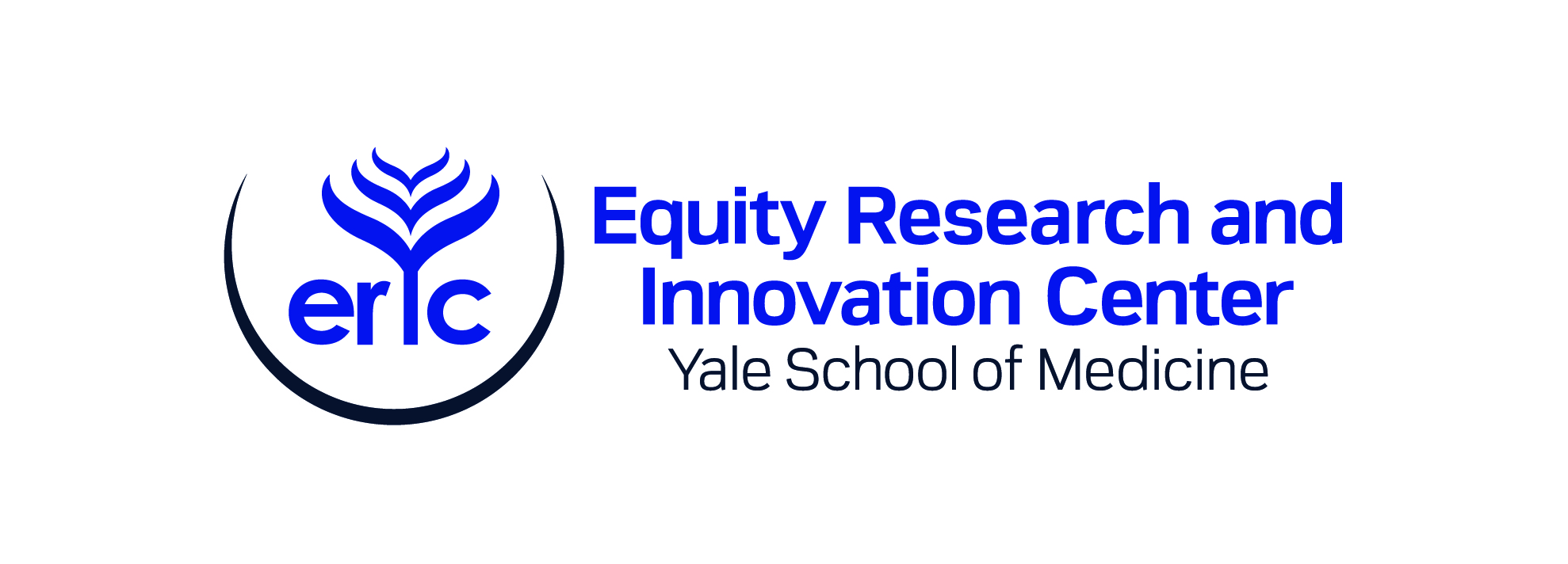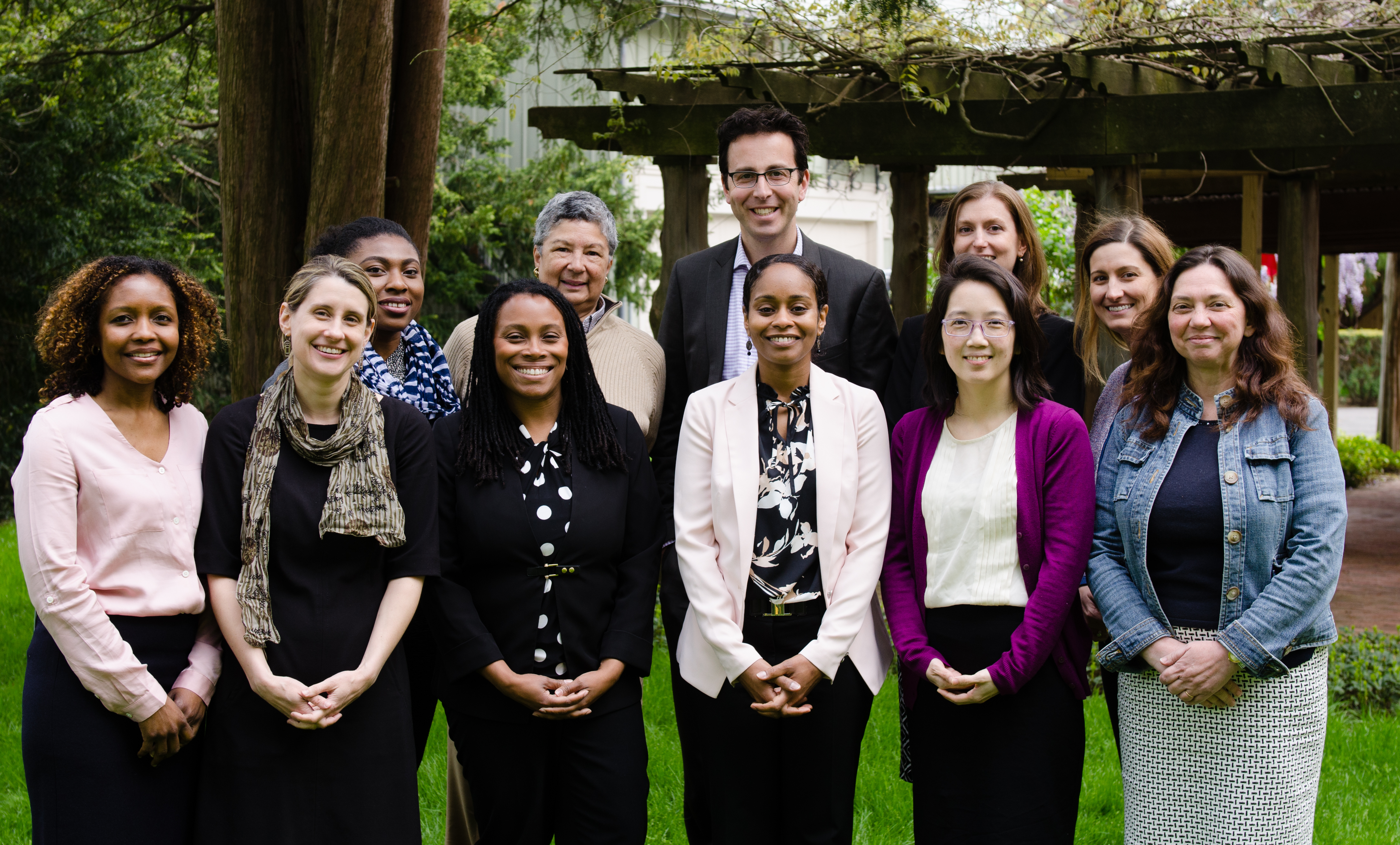- April 03, 2024
Data equity conference brings leaders together to reduce health disparities
- April 02, 2024
Yale Department of Internal Medicine Promotions and Appointments (April 2024)
- March 20, 2024
On a mission
- October 03, 2023Source: The Washington Post
An epidemic of chronic illness is killing us too soon
Equity Research and Innovation Center (ERIC)
Racial and Ethnic Disparities in Population Level Covid-19 Mortality
Current reporting of Covid-19 mortality data by race and ethnicity across the United States could bias our understanding of population-mortality disparities. Moreover, stark differences in age distribution by race and ethnicity groups are seldom accounted for in analyses. To address these gaps, we conducted a cross-sectional study using publicly-reported Covid-19 mortality data to assess the quality of race and ethnicity data (Black, Latinx, white), and estimated age-adjusted disparities using a random effects meta-analytic approach. We found only 28 states, and NYC, reported race and ethnicity-stratified Covid-19 mortality along with large variation in the percent of missing race and ethnicity data by state. Aggregated relative risk of death estimates for Black compared to the white population was 3.57 (95% CI: 2.84-4.48). Similarly, Latinx population displayed 1.88 (95% CI: 1.61-2.19) times higher risk of death than white patients. Discussion: In states providing race and ethnicity data, we identified significant population-level Covid-19 mortality disparities. We demonstrated the importance of adjusting for age differences across population groups to prevent underestimating disparities in younger population groups. The availability of high-quality and comprehensive race and ethnicity data is necessary to address factors contributing to inequity in Covid-19 mortality.
ECHORN Hurricane Relief Fund
Click here to donate to the ECHORN Hurricane Relief Fund.
The 2020 hurricane season arrives in the Caribbean amidst climate change, the COVID-19 pandemic, and predictions for an unusually active season.
- Climate change causes more severe storms and hurricanes that threaten island communities. The 2020 season forecast includes an above average number of storms, including several expected to reach a Category 3 level or higher.
- The Caribbean is already under serious economic strain from the ongoing pandemic. Decreases in tourism, dependency on food imports, and stagnant economic growth have complicated plans for disaster preparedness and recovery.
- Social distancing measures could impact shelter use and access to aid.
The ECHORN (Eastern Caribbean Health Outcomes Research Network) Hurricane Relief Fund and The Community Foundation for Greater New Haven raise funds to help local, Caribbean non-profit organizations meet the health and well-being needs of their communities after natural disasters. The fund was created in response to Hurricanes Irma and Maria (2017), which devastated the Caribbean islands of Puerto Rico, the US Virgin Islands, the British Virgin Islands, St. Martin/St. Maarten, Barbuda, Dominica, and many others. It continues to help strengthen the capacity of the Caribbean populations to access resources that help support and rebuild these Caribbean communities after a disaster. Organizations can use funds to replace destroyed or lost supplies, coordinate outreach efforts, or rebuild other vital resources.
ECHORN Hurricane Relief Funds have helped non-profit organizations make positive impacts in their communities:
Our Lady of Mount Carmel Catholic Church of St. John, U.S. Virgin Islands used ECHORN Hurricane Relief Funds to purchase a commercial large volume cooler. This refrigerator holds more food and increases the kitchen efficiency, which then expanded the church’s feeding efforts in the community.
Caño Martín Peña ENLACE Project of San Juan, Puerto Rico used ECHORN Hurricane Relief Funds to rehabilitate community gardens damaged by Hurricane Maria. These gardens promote community-building activities and provide fresh fruits and vegetables to nearby communities. The gardens also prevent these areas from being used in ways that could threaten residents’ safety and public health.
ECHORN is committed to these communities over the long term to help restore the necessary health and social services infrastructure for the well-being of all who live there.
Thank you again for your assistance in rebuilding and providing a positive, long-lasting impact on these communities.
Please click here in order to make a secure, online credit card donation to The ECHORN Hurricane Relief Fund. Contributions are tax-deductible to the full extent of the law. No funds will be used to support ECHORN or CFGNH personnel or research activities.
About ERIC
 The Equity Research and Innovation Center (ERIC) at Yale University has two overarching goals. The first goal is to develop and disseminate evidence-based models to narrow health and healthcare inequity gaps. The second goal is to provide research support infrastructure for Yale faculty and affiliated community-based organizations. ERIC is at the forefront of action-oriented health disparities research with direct implications for improving health and healthcare outcomes for historically vulnerable populations both domestic and global.
The Equity Research and Innovation Center (ERIC) at Yale University has two overarching goals. The first goal is to develop and disseminate evidence-based models to narrow health and healthcare inequity gaps. The second goal is to provide research support infrastructure for Yale faculty and affiliated community-based organizations. ERIC is at the forefront of action-oriented health disparities research with direct implications for improving health and healthcare outcomes for historically vulnerable populations both domestic and global.
 In addition to facilitating a multipronged research agenda, ERIC serves as an important resource for physician-scientists across the Yale School of Medicine through support of their efforts to conduct research which successfully includes vulnerable and diverse populations, allowing a range of researchers to perform more socially and culturally representative research while enhancing their success in a competitive funding climate.
In addition to facilitating a multipronged research agenda, ERIC serves as an important resource for physician-scientists across the Yale School of Medicine through support of their efforts to conduct research which successfully includes vulnerable and diverse populations, allowing a range of researchers to perform more socially and culturally representative research while enhancing their success in a competitive funding climate.
ERIC builds upon the local, national, and global experience & expertise of Dr. Nunez-Smith and a team of over fifty dedicated faculty and staff across numerous institutions and portfolio projects.